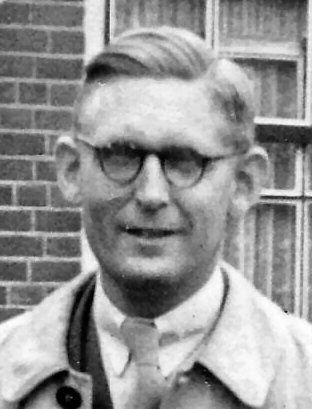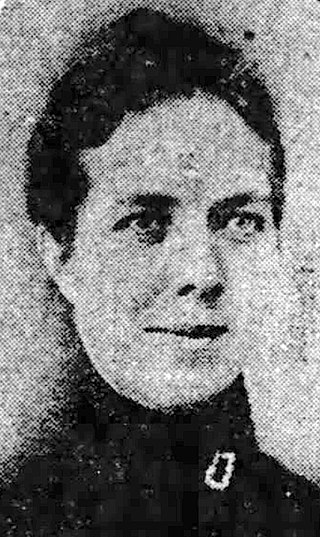Former names | Pyongyang Chosun Jesus Presbyterian Seminary |
|---|---|
| Type | Seminary |
| Established | 1901 |
| Affiliation | Korean Christian Federation (KCF) |
| Location | , North Korea |
| (1995) | |
The Pyongyang Theological Seminary (also known the Pyongyang Theological Academy, [1] but commonly known simply as the Pyongyang Seminary [2] ) is a Protestant theological seminary in Pyongyang, the capital of North Korea. It is run by the government-controlled Korean Christian Federation (KCF) and trains pastors and evangelists for it.
Founded in 1901 as the Pyongyang Chosun Jesus Presbyterian Seminary, the seminary has historically been associated with Presbyterianism. It became the center of Korean Christianity of the early 20th century. By 1916 its founder Samuel Austin Moffett was in disagreement over practical matters with another teacher, James Scarth Gale. The row developed into a schism on doctrinal matters and in 1959 the seminary split into the conservative Chongshin University and the liberal Presbyterian College and Theological Seminary.
In 1938, during the Japanese occupation of Korea, the seminary had been temporarily closed down after students defied orders to bow to Shinto shrines. After the division of Korea, the seminary was relocated to Seoul in South Korea and renamed the Presbyterian Theological Seminary.
The Pyongyang-based seminary resumed operations in 1972 after having been assumed by the KCF. When its funds ran out in 1995, the Korean Methodist Church (KMC) of South Korea assumed a share of its financial responsibilities.
Originally called the Pyongyang Chosun Jesus Presbyterian Seminary, [2] it was founded in 1901 by Samuel Austin Moffett, [3] the father of Samuel H. Moffett. [4] Samuel Austin was motivated to found the seminary in Pyongyang because the city had been badly damaged in the First Sino-Japanese War. [5] Initially, the seminary would consist of two years of preparatory courses and the actual seminary lasting three years. [2] In the beginning, Samuel Austin taught his students at home. [4] He was its first president until 1918 and a faculty member until 1935. [2] [4] The Seminary was the center of Korean Christianity of the early 20th century. [6]
In 1905 the seminary became affiliated with the Presbyterian Church in the United States. [3] [7] The first class graduated in 1907. [8] A building was constructed in 1909 and renewed in 1922. [9] By 1916 Moffett was in disagreement with a teacher at the school, James Scarth Gale. Their differences concerning the quality of teaching, materials, and admission would develop into a schism between conservatives and liberals. [10] Initially, the seminary remained conservative and mission-oriented. [11]
The seminary was temporarily closed in 1938 following the Japanese occupation of Korea. The Japanese occupiers demanded that students of the seminary would bow to Shinto shrines, something that they could not agree to. [2] Until 1940, the seminary had been the only seminary in Korea maintained by the Presbyterian Church. [12] After the division of Korea, the seminary was relocated to Seoul in South Korea in 1948 and renamed the Presbyterian Theological Seminary. [2]
In 1959 the seminary finally split due to the doctrinal differences into the conservative Chongshin University and the more moderate Presbyterian College and Theological Seminary. [3] [13]
In 1972, the seminary was reopened and assumed by the government-controlled Protestant body Korean Christian Federation (KCF). [14] [15] The seminary operated under KCF until 1995 when it ran out of funds. In April 1999, the Korean Methodist Church (KMC) of South Korea offered to fund the seminary to secure the continuation of its operation. KMC bid $600,000 to provide funding for three years. [15] It reopened in 2000, [1] and a new building was completed in 2003. [16]
The Seminary is run by the KCF, [17] which chooses its students and devises its curriculum. KMC, however, is consulted each semester. The seminary is located in Pyongyang, the capital of North Korea. [15]
The seminary trains pastors and evangelists for the KCF. [1] [16] Before 1995, the seminary had produced some 60 graduates. [15]

Archibald Alexander was an American Presbyterian theologian and professor at the Princeton Theological Seminary. He served for 9 years as the President of Hampden–Sydney College in Virginia and for 39 years as Princeton Theological Seminary's first professor from 1812 to 1851.

Chongshin University (Korean: 총신대학교) is a Christian university in Seoul, South Korea. It has deep historical ties to conservative Presbyterianism, reformed theology, and belongs to the Presbyterian Church in Korea (HapDong). The current president is Park Seong-gyu.
The Presbyterian Church of Korea (PCK), also abbreviated as Yejang (Korean: 예장), is a Protestant denomination based in South Korea that follows Calvinist theology and the Westminster Confession of Faith. Since the 1950s, the denomination has separated into various branches of the same name due to theological and political disputes. As of 2019, 286 branches in South Korea, many of which have separated from the PCK, use the title 'Presbyterian Church of Korea'.
The Church of Pakistan is a united Protestant Church in Pakistan founded in 1970; it holds membership in the Anglican Communion, the World Communion of Reformed Churches, and the World Methodist Council.

Hendrikus Berkhof was a professor of Systematic Theology at the University of Leiden.

Mangyongdae (Korean: 만경대) is a neighborhood in Mangyongdae-guyok, Pyongyang, North Korea. North Korean propaganda claims Mangyongdae is the birthplace of North Korean leader Kim Il Sung, although in his memoirs he wrote that he had been born in the nearby neighborhood of Chilgol. Mangyongdae is where his father Kim Hyong-jik was from, and where Kim Il Sung spent his childhood.

Samuel Hugh Moffett was an American Christian missionary and academic who latterly served as professor emeritus at the Princeton Theological Seminary. He was regarded as a leading scholar on Christianity in Asia, and was the author of numerous publications, including the two-volume series of A History of Christianity in Asia.

The General Assembly of Presbyterian Church in Korea (GAPCK), also known as Yejang Hapdong (Korean: 예장합동) or just Hapdong, is an Evangelical Presbyterian denomination, which is the biggest Christian church in South Korea. The headquarters of the church is in Seoul, South Korea.
The Presbyterian Church of Colombia - is a Protestant Reformed denomination, founded on the Colombia in 1855, from the missionary work of Rev. Ramón Montsalvatge, sent by the American Bible Society and Rev. Henry Barrington Pratt, sent by Presbyterian Church in the United States of America.
The Evangelical Reformed Church of Colombia, is a Protestant Reformed denomination, founded in Colombia in 1987 by Kim Wui -Dong, missionary of the Presbyterian Church of Korea (TongHap) and dissident Presbyterian churches of the Presbyterian Church in Colombia.

Friedrich Adolph Lampe was a German Pietist pastor, theologian and professor of dogmatics. He was a Cocceian, and follower of Johannes d'Outrein. He is known as the first Pietist leader from a Calvinist rather than Lutheran background.

The Church of the Life-Giving Trinity (Korean: 평양정백사원) is a Russian Orthodox church in Jongbaek-dong, Rangrang District in Pyongyang, North Korea. It is the first and only Orthodox church in the country, and one of only a handful of Christian churches there overall.

Kil Sŏn-chu, considered by some to be the father of Korean Christianity, was one of the first Koreans ordained as a Presbyterian minister. He was an early supporter of Korean nationalism and helped shape the nature of the Korean Protestant Christianity.

Chu Ki-chol was a Korean Presbyterian minister and martyr. After having dropped out of Yonhi College due to poor health and being briefly associated with the March 1st Movement for the independence of Korea, Chu attended a faith meeting of Kim Ik-du. Thereafter, he sought a career in ministry, enrolling first at the Pyongyang Theological Seminary becoming a deacon. Chu was ordained a minister in 1926 and served as one in Pusan, Masan, and Pyongyang.

Chilgol (Korean: 칠골) is a suburb of Pyongyang in the Mangyongdae District.
Rev. Samuel Austin Moffett was one of the early American Presbyterian missionaries to Korea.

Mary Alice Fish Moffett was an American Presbyterian medical missionary in Korea, with her husband Samuel A. Moffett.
Ahn Byung-Mu was a Korean New Testament scholar and founding father of minjung theology.
The Reformed Presbyterian Church of Ecuador is a Protestant Reformed, founded in Ecuador in 1991, by missionaries of the Presbyterian Church in America.
The Bangladesh Presbyterian Church (BPC) is a conservative Reformed denomination Evangelical in Bangladesh. It was organized in 2015, in Dhaka, by Rev. Kyung-Yeop Lee, missionary sent to the country by Presbyterian Church in Korea (TongHap).